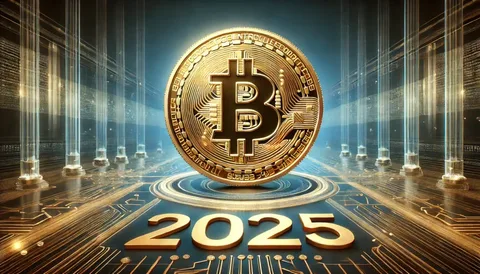The world of cryptocurrency continues to evolve at a breathtaking pace, with Bitcoin remaining at the forefront of this digital financial revolution. As the pioneering cryptocurrency, Bitcoin News 2025, which launched over a decade ago, Bitcoin has transformed from a niche technology experiment into a globally recognised asset class worth hundreds of billions of dollars. Whether you’re a Bitcoin News 2025 seasoned investor, a curious newcomer, or someone who wants to understand the forces shaping our financial future, staying informed about Bitcoin news is more important than ever.
In today’s rapidly changing landscape, Bitcoin doesn’t Bitcoin News 2025 exist in isolation. It’s influenced by regulatory decisions, institutional adoption, technological advancements, macroeconomic factors, and shifting public sentiment. From Wall Street investment Bitcoin News 2025 firms adding digital assets to their portfolios to governments worldwide crafting new cryptocurrency regulations, the factors influencing Bitcoin’s trajectory are complex and interconnected. This comprehensive guide will walk Bitcoin News 2025 you through the latest developments, emerging trends, and critical insights that every Bitcoin enthusiast should be aware of in 2025.
Understanding the current state of Bitcoin requires more than Bitcoin News 2025 just tracking price movements. It demands a holistic view of the ecosystem, including blockchain technology innovations, mining dynamics, environmental considerations, and the growing Bitcoin News 2025 integration of Bitcoin into mainstream financial services. As we navigate through this article, you’ll gain valuable perspectives on where Bitcoin stands today and where it might be headed tomorrow.
The Current State of Bitcoin Markets
The Bitcoin market has demonstrated remarkable Bitcoin News 2025 Bitcoin News 2025 resilience and maturity over recent years, establishing itself as a legitimate asset class in the eyes of traditional finance. Current trading volumes reflect increased participation from both retail and institutional Bitcoin News 2025 and institutional investors, with cryptocurrency exchanges processing billions of dollars in transactions daily. The market infrastructure supporting Bitcoin has grown exponentially, with sophisticated trading platforms, custody solutions, and financial products now available to investors worldwide.
Price volatility, once considered Bitcoin’s defining characteristic, has shown signs of moderating as the market matures. While significant price swings still occur, the amplitude of these movements has generally decreased compared to Bitcoin’s early years. This stabilisation has made BTC more attractive to risk-averse institutional investors who previously viewed cryptocurrency as too unpredictable for serious portfolio allocation.
The role of Bitcoin ETFs (Exchange-Traded Funds) has been transformative for market accessibility. These investment vehicles have opened the doors for traditional investors to gain Bitcoin exposure without the technical complexities of wallet management or exchange accounts. The approval and launch of spot Bitcoin ETFs in various jurisdictions has been hailed as a watershed moment, bringing unprecedented levels of liquidity and legitimacy to the market.
Market sentiment indicators reveal a growing sophistication among Bitcoin investors. Rather than purely speculative trading, many participants now employ fundamental Bitcoin News 2025 analysis, examining on-chain metrics, network activity, and adoption trends to inform their investment decisions. This evolution toward more analytical approaches suggests a maturing market that’s transitioning beyond its speculative origins.
Regulatory Developments Shaping Bitcoin’s Future

Regulatory clarity remains one of the most critical factors influencing Bitcoin adoption and market stability. Governments worldwide are grappling with how to classify, Bitcoin News 2025 regulate, and tax cryptocurrency activities. Recent developments have shown a trend toward more comprehensive regulatory frameworks rather than outright bans, reflecting a recognition that digital assets are here to stay.
In the United States, regulatory agencies, including the SEC, CFTC, and IRS, continue refining their approaches to cryptocurrency regulation. Debates around whether Bitcoin should be classified as a commodity, security, or something entirely new continue to shape policy discussions. These Bitcoin News 2025 classifications carry significant implications for how Bitcoin can be traded, who can offer Bitcoin-related services, and what protections investors receive.
The European Union has made substantial progress with Bitcoin News 2025’s comprehensive crypto regulations through frameworks like MiCA (Markets in Crypto-Assets). These regulations aim to provide consumer protection while fostering innovation, creating a balanced approach that Bitcoin News 2025 many other jurisdictions are watching closely. The harmonisation of rules across EU member states has created a more predictable environment for blockchain businesses operating in the region.
Emerging markets have taken diverse approaches to Bitcoin regulation. Some nations have embraced cryptocurrency as a tool for financial inclusion and economic development, while others have implemented restrictive policies citing concerns about capital flight or financial stability. El Salvador’s experiment with Bitcoin as legal tender continues to provide valuable real-world data about cryptocurrency’s potential role in national economies.
Institutional Adoption and Wall Street’s Bitcoin Embrace
The narrative around Bitcoin has dramatically shifted from “digital gold for techno-libertarians” to “strategic asset for portfolio diversification.” Major financial institutions that Bitcoin News 2025 once dismissed cryptocurrency have now established dedicated digital asset divisions. Investment banks, hedge funds, and asset managers are increasingly incorporating Bitcoin into their offerings, responding Bitcoin News 2025 to client demand and recognising the asset’s unique characteristics.
Corporate treasury adoption represents another significant Bitcoin News 2025 development. Several publicly traded companies have allocated portions of their cash reserves to Bitcoin, viewing it as a hedge against monetary inflation and currency devaluation. These corporate Bitcoin News 2025 moves have legitimised Bitcoin in boardrooms around the world, demonstrating that cryptocurrency isn’t just for retail speculators but can serve serious financial management purposes.
The infrastructure supporting institutional participation in Bitcoin News 2025has matured considerably. Professional-grade custody solutions, insured storage options, and institutional trading platforms have addressed many of the security and operational concerns that Bitcoin News 2025 previously deterred large-scale investors. Companies specialising in cryptocurrency custody have raised billions in funding, underscoring the demand for secure institutional-grade services.
Traditional banks have also warmed to Bitcoin, with many now offering Bitcoin News 2025 cryptocurrency services to their clients. This integration into conventional banking represents a remarkable turnaround from earlier years, when banks often refused to service cryptocurrency Bitcoin News 2025 businesses. The convergence of traditional finance and digital assets continues to accelerate, blurring the lines between these once-separate worlds.
Technological Innovations in the Bitcoin Ecosystem
While Bitcoin’s base protocol changes slowly by design, the ecosystem surrounding it continues to innovate rapidly. The Lightning Network, a second-layer solution designed to enable faster and cheaper Bitcoin transactions, has seen growing adoption. This technology addresses one of Bitcoin’s primary limitations—scalability—by enabling millions of transactions to occur off the main blockchain while maintaining security guarantees.
Taproot, one of Bitcoin’s most significant protocol upgrades, has enhanced privacy, efficiency, and smart contract capabilities. This upgrade demonstrates that Bitcoin can evolve and incorporate new features while maintaining its core principles of decentralisation and security. The implementation showcases the careful, deliberate approach the Bitcoin community takes toward protocol changes.
Mining technology continues to advance with more efficient hardware and innovative approaches to energy consumption. The conversation around Bitcoin’s environmental impact has spurred significant innovation in renewable energy integration and mining efficiency. Many mining operations now prioritise sustainable energy sources, with some facilities exclusively powered by solar, wind, or hydroelectric power.
The development of Bitcoin-based financial services has exploded, with new products ranging from savings accounts earning Bitcoin-denominated interest to sophisticated derivatives and options markets. These innovations expand Bitcoin’s utility beyond simple value transfer, positioning it as a foundation for an entirely new financial system built on transparent, programmable money.
Also Read: Bitcoin News Latest Updates & Market Analysis 2025
Bitcoin’s Role in the Global Economy

Bitcoin’s position in the broader economic landscape continues to evolve as macroeconomic conditions fluctuate. Many analysts view Bitcoin as a potential hedge against inflation, particularly as central banks worldwide maintain expansionary monetary policies. The fixed supply of 21 million BTC stands in stark contrast to fiat currencies that can be printed without hard limits, making Bitcoin attractive during periods of monetary uncertainty.
Cross-border payments represent one of Bitcoin’s most practical use cases, especially for individuals and businesses operating in countries with restricted banking access or unstable currencies. The ability to transfer value globally without intermediaries offers significant advantages in speed, cost, and accessibility compared to traditional international wire transfers or remittance services.
The concept of Bitcoin as legal tender, pioneered by El Salvador and explored by other nations, raises fascinating questions about cryptocurrency’s role in national monetary systems. While challenges and controversies surround these experiments, they provide invaluable insights into how digital currencies might function as official mediums of exchange.
Financial inclusion remains a compelling argument for Bitcoin adoption, particularly in regions with limited banking infrastructure. The ability to access financial services with nothing more than a smartphone and an internet connection has the potential to bring billions of unbanked individuals into the global economy. This democratisation of finance aligns with Bitcoin’s original vision of creating a peer-to-peer electronic cash system accessible to everyone.
Conclusion
The Bitcoin news landscape in 2025 reflects a cryptocurrency that has matured significantly while retaining its revolutionary potential. From increased regulatory clarity and institutional adoption to technological innovations and expanding real-world use cases, Bitcoin continues to cement its position as the leading digital asset. The journey from fringe technology to mainstream financial instrument has been remarkable, though challenges certainly remain.
Understanding Bitcoin requires staying informed about multiple interconnected factors—market dynamics, regulatory developments, technological progress, and macroeconomic trends. As the cryptocurrency market continues to evolve, Bitcoin’s role as both a speculative asset and a potential cornerstone of the future financial system becomes increasingly important to monitor.
For investors, developers, policymakers, and curious observers alike, keeping up with Bitcoin news isn’t just about tracking price movements. It’s about understanding a fundamental shift in how we think about money, value transfer, and financial sovereignty. As we move forward, Bitcoin’s story will undoubtedly continue to surprise, challenge, and inspire those paying attention to this unprecedented financial innovation.
FAQs
Q: What factors currently influence Bitcoin’s price most significantly?
Bitcoin’s price is influenced by multiple factors, including institutional demand, regulatory announcements, macroeconomic conditions, mining dynamics, and market sentiment. Major institutional purchases or regulatory clarity often create positive price momentum.
Q: Is Bitcoin legal to own and use in most countries?
Yes, Bitcoin is legal to own and use in the majority of countries worldwide, though the specific regulatory framework varies significantly. Most developed nations treat Bitcoin as property or a commodity for tax purposes while allowing citizens to buy, hold, and sell it freely.
Q: How does Bitcoin mining work, and why is it necessary?
Bitcoin mining is the process by which new bitcoins are created, and transactions are verified and added to the blockchain. Miners use specialised computer hardware to solve complex mathematical problems, and the first to solve the problem gets to add the next block of transactions to the blockchain while receiving newly minted bitcoins as a reward.
Q: What are the main differences between Bitcoin and other cryptocurrencies?
Bitcoin distinguishes itself as the first cryptocurrency with the longest operational history and the highest level of network security. Unlike many newer cryptocurrencies, Bitcoin prioritises decentralisation, security, and stability over features like smart contract functionality or transaction speed.
Q: How can beginners safely start investing in Bitcoin?
Beginners should start by educating themselves about Bitcoin’s fundamentals, risks, and proper security practices before investing any money. When ready, they should use reputable, regulated cryptocurrency exchanges that offer user-friendly interfaces and strong security measures, including two-factor authentication.

